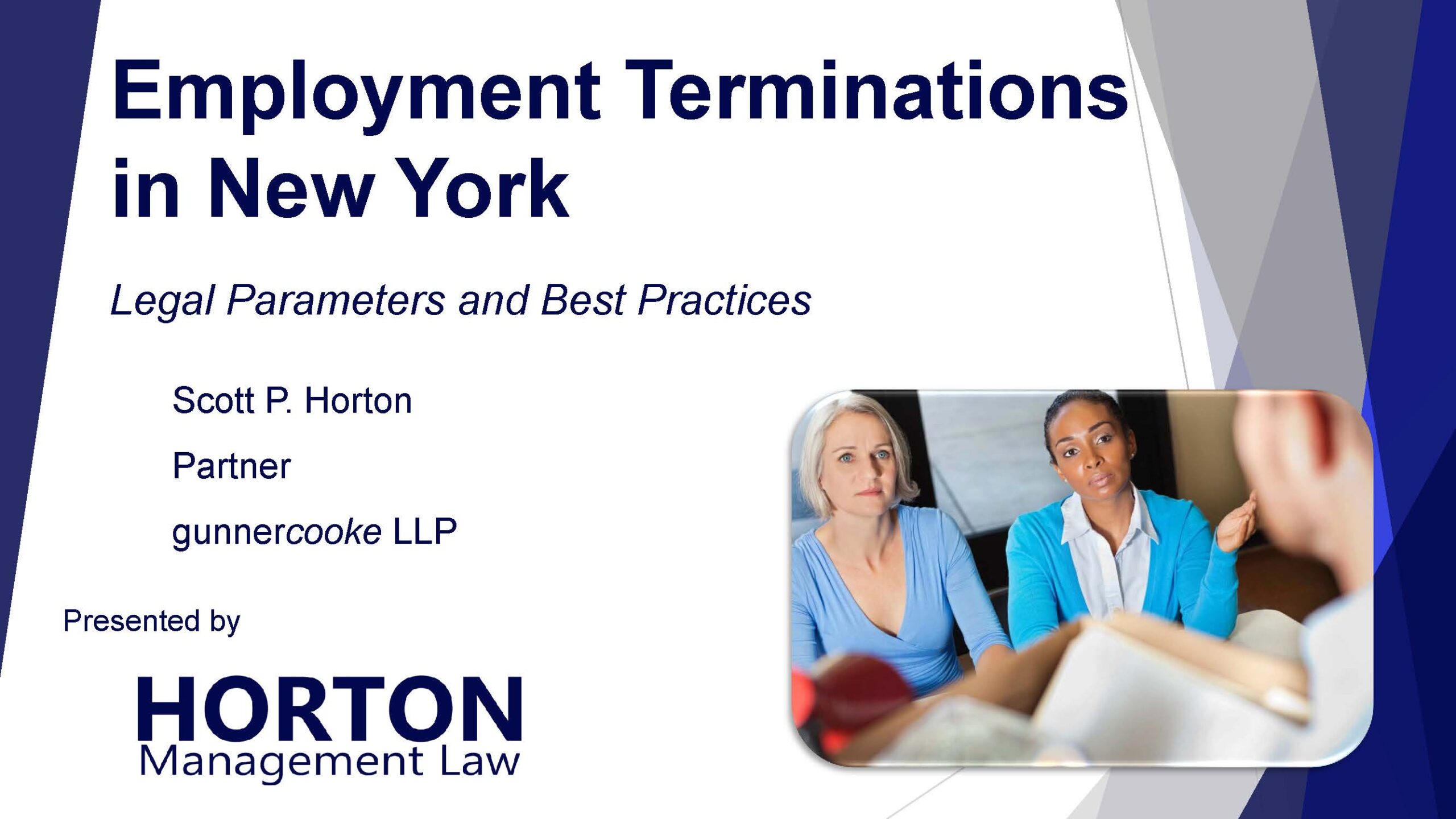Section 75 of the New York Civil Service Law establishes procedures for disciplining many governmental employees in the state. Public employers must know which employees these rules apply to and what the rules are.
This post will address:
- Which employees Section 75 protects
- Alternatives to Section 75
- Section 75 charges
- Section 75 hearings
- Post-hearing procedures
Who is in Civil Service?
All governmental employees in New York are in either the “Classified” or “Unclassified” Civil Service. The Unclassified Civil Service consists primarily of:
- Elected officials
- Officers and employees of the State Legislature
- Certain Governor-appointed positions
- Members, officers, and employees of boards of elections
- Certified teachers and supervisors of school districts and BOCES
- Certain professional positions in the State University and Community College systems
(For information about disciplining teachers in New York, read my post on New York Teacher Tenure Rights.)
All other positions are in the Classified Civil Service.
The Classified Civil Service is further divided into exempt, competitive, non-competitive, and labor classes. Classified Civil Service positions are competitive by default, unless the applicable civil service commission establishes otherwise. The competitive class includes all positions for which it is practical to assess the merit and fitness of employees by competitive examination.
Exempt positions within the Classified Civil Service are usually policy-making positions. Non-competitive positions are ones for which it is not practicable to conduct competitive examinations.
Among other things, these classifications help determine whether Section 75 applies in disciplining a particular employee.
Which Civil Service Employees Does Section 75 Cover?
Section 75 applies, by default, when a public employer seeks to discipline the following members of the Classified Civil Service (with limited exceptions):
- All competitive class permanent appointees.
- Any permanent appointee who was honorably discharged from the U.S. armed forces after serving in time of war.
- Any permanent appointee who is an exempt volunteer firefighter.
- An employee who has served at least 5 years of continuous service in a non-competitive position not designated as confidential or influencing policy.
- A non-competitive employee of New York City in the position of Homemaker or Home Aide who has at least 3 years of continuous service in the position.
- A police department employee holding the position of detective for three continuous years or more.
Employees can waive the protections of Section 75, including through their unions. Often, collective bargaining agreements will provide that grievance and arbitration procedures will apply instead of Section 75’s procedures.
Section 75 Disciplinary Charges
When an employer wants to discipline an employee subject to Section 75, it must serve the employee with written charges of misconduct and/or incompetency. The notice must identify the proposed disciplinary action and the reasons for it. Usually, an employer can only seek discipline for alleged incompetency or misconduct within the past 18 months.
The employee must have at least 8 days to answer the charges in writing.
Interim Suspension
Once an employer serves the charges, it may also suspend the employee without pay for up to 30 days. If the charges are not resolved in that time, the employer must restore the employee to the payroll.
Employees acquitted of the charges must be restored to their position with full backpay, less any unemployment benefits received.
Hearing Process
Under Section 75, the employer designates the hearing officer. This can be an officer or employee of the disciplining employer or an outside person. Sometimes, however, collective bargaining agreements modify the employer’s right to select the hearing officer unilaterally.
The hearing officer will oversee a hearing on the disciplinary charges. The hearing typically proceeds much like labor arbitration hearings, without formal rules of evidence or procedure.
The charged employee may have representation by an attorney or a union representative during the hearing. The employee and employer may both call witnesses and present evidence. The employer bears the ultimate burden of proving incompetency or misconduct.
The hearing office must make a record of the hearing and issue recommendations on the charges. The employer, through its board or officer with the power to remove an employee, must review the recommendations and decide the outcome of the charges. In other words, the hearing officer does not actually decide the case under Section 75. The employer does.
If the employee disagrees with the final decision on the charges, they can appeal to the applicable civil service commission or through state court.
When To Pursue Section 75 Discipline
Employers seldom rush to discipline an employee protected by Section 75. Often this is a nearly last resort. Most public employers try to first counsel employees before getting to this point. But some forms of misconduct demand immediate disciplinary action. As does repeated bad behavior or poor performance.
Disciplining a public employee, especially one covered by Section 75, often involves many legal issues. Most employees in this situation have due process rights and other constitutional protections. Many–especially in New York–are in a union. This adds layers of complexity to the discipline process. Or at least it adds incentive to make sure the discipline is done right. Accordingly, most public employers should get legal advice before initiating disciplinary procedures. They should also have legal representation during the hearing process.


